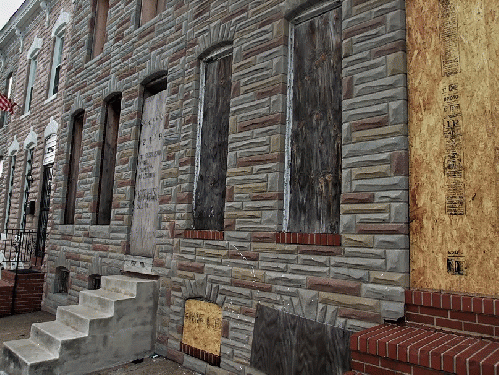Washington, DC January 1, 2014 - What is it that is required for the survival of a human being? The obvious answers are food, water and oxygen. What is not so obvious, or so it seems, if you ask people on the street, social media or politicians, the answer is shelter or housing.
Poverty issues have been on my radar for a long time, but I have particularly avoided the subject directly in my writing for quite some time, leaving it for the art aspect of my career instead. Recently, this avoidance has become impossible for me as homeless people continue to die from hypothermia despite efforts to mitigate the closure of a number of shelters over the past several years in the district. As of this morning, the number of homeless people dead in DC is now up to fifteen, and we're only two months into the winter, with at least three more to go before the end of the hypo-season.
Hypothermia isn't the only thing the homeless are at risk of dying from. Because of their exposure to the weather, normal diseases such as the flu, or bronchitis put the homeless at a greater risk of dying then the housed.
According to a report by the National Health Care for the Homeless Council in 2006, homeless people in all age groups are three times more likely to die then the general population. The average lifespan of a homeless person is 50 years old, the same age as the average American at the turn of the twentieth century or three quarters of what their housed counterparts in the U.S. can expect to live to.
Surely, there are many reasons for the shorter lifespan of homeless people in this country, but how many of the reasons are preventable by simply providing homes, health care, and food security for this and other poverty stricken sections of society?
The right to life is not in doubt. However, for many what that right entails is in doubt. There is good reason for this because the people who have the very resources needed to allow full protection of this group and their right to life, want to keep those resources.
So, those with the needed resources have muddied the waters over eons to enable them to do just that, keep their resources. They have 'accepted' just enough of the rights held by the homeless as real so as to not make it politically uncomfortable for themselves, while giving up as little as possible.
Those in power have asked us to place property rights over the lives of our brothers and sisters, those denied what they need to live healthy productive lives, so that rich can maintain a profit and their power, even if it means that others die in order for them to do so.
In this country and around the world, there is in truth an abundance of wealth and resources available to meet the needs of every last man, woman and child on the planet, much of it hoarded in the hands of a few. As for the people, they are told that there are shortages. They are told this is to keep the markets stable so that the people who have the resources are able to profit from them. What they are being told is patently false.
The question, therefore, isn't whether or not the resources exist because clearly, what with the level of waste, corporate welfare and money spent murdering poor black and brown people around the world, the resources do exist, but are spent elsewhere or hoarded by those who control them.
So rather, it is a question of our having the political and social will to provide these resources to the sections of society in need rather than to just those with the political power and money needed to buy these resources for themselves, thereby denying them to the public, not whether the resources exist or who will pay for it.
Directly to the issue of homelessness (and, please bear with me, because I have several points that I want to make here), it must be noted that the shelter system is grossly ineffective in dealing with the problem and is sort of like putting a bandaid on a broken arm.
The first way it is ineffective is that very few people want to go to a shelter. There are several reasons for this, for instance, in many shelters you are putting yourself at greater risk for disease, bedbugs, lice, theft, and the potential to be the victim of a violent outburst.
Another reason people don't want to go to shelters is they don't want to be spoken down to as if their economic situation necessarily has any bearing on their mental abilities. Even if a portion of those that do go have mental issue of some sort, you can not treat everyone as if they do.
To the issue of health and the effects of not providing housing for all, if homeless people are more likely to get sick and die earlier in life, not providing them with housing and allowing them to be constantly exposed to weather conditions without respite will cause them to be an unnecessary burden on emergency rooms and taxpayers. However, if they were housed, they would be far more likely to go to a community health clinic for things such as the flu and other easily curable ailments, which would also be far less deadly and far less expensive under housed conditions.
(Note: You can view every article as one long page if you sign up as an Advocate Member, or higher).









